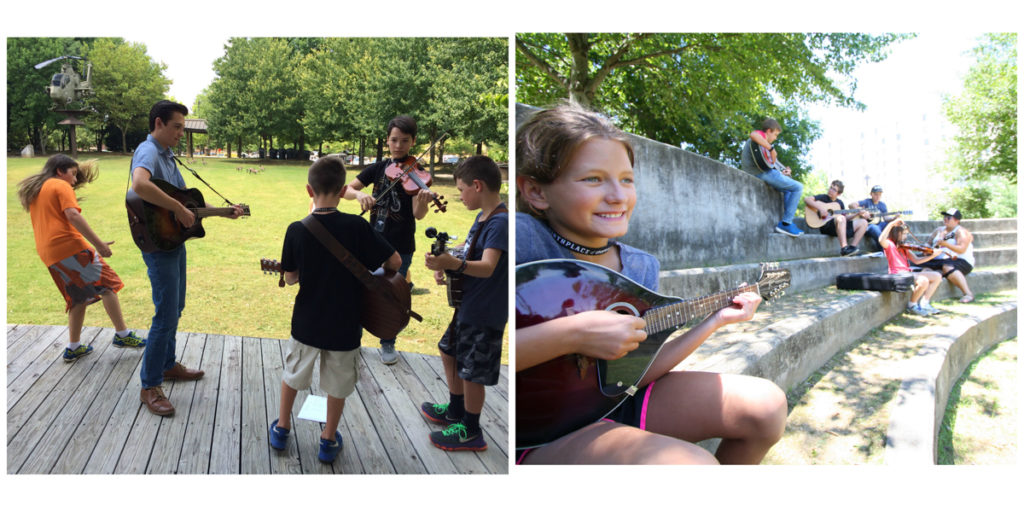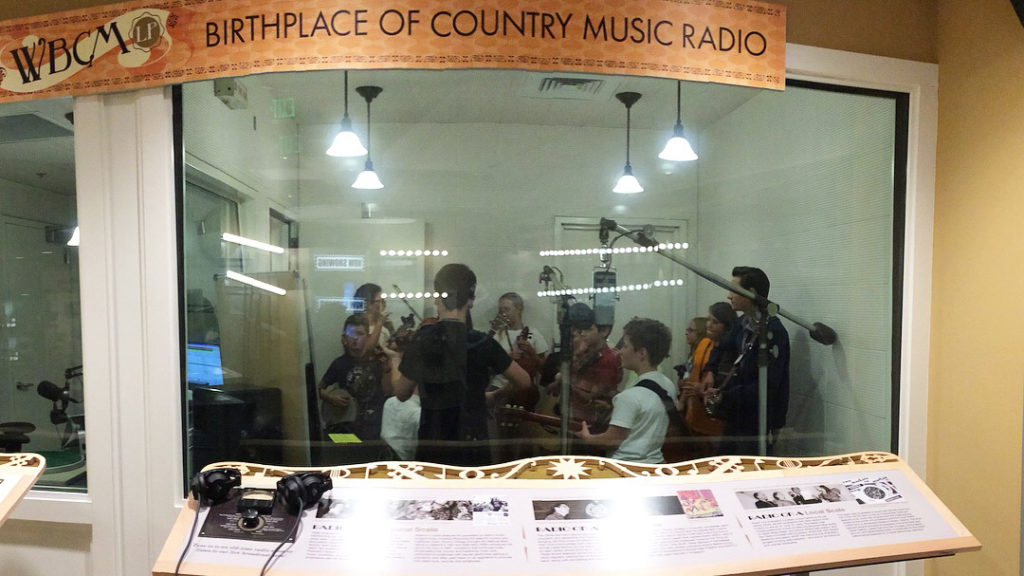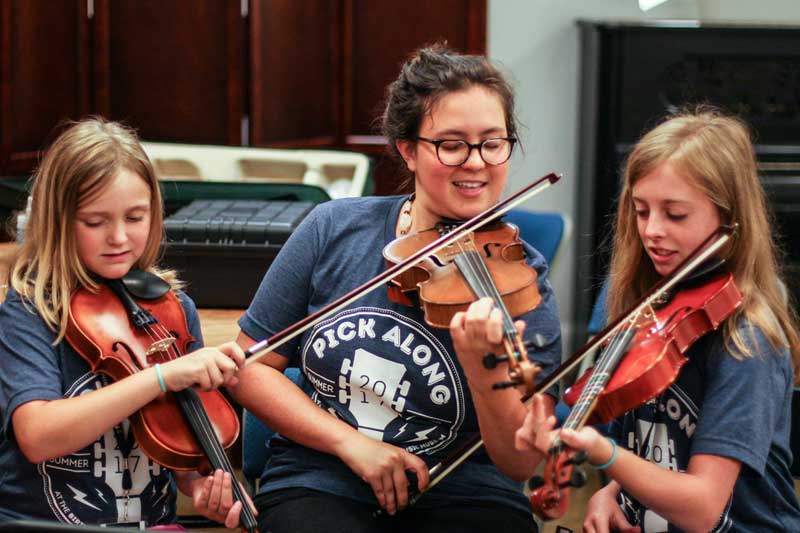As a group of campers were finishing up lunch one day, I was preparing to take everyone to the park for some recreation time and a bit of a mental break from their hard work. As I was about to ask who wanted to carry the sidewalk chalk, a few students approached me with a request.
“Miss Erin, instead of playing games, can we bring our instruments to the park so we can practice?”
The first time I heard this question, I was surprised and impressed by the desire of our Pick Along students to continue playing instruments rather than a game of kickball. But as the days and weeks continued, I begin to receive this request over and over again. In hindsight, I realize that it is not surprising at all that a child would want to play their instrument over other activities. Learning a musical instrument is engaging. It is a connection to others. It’s actually…A LOT of fun.

Each summer for the past four years, the Birthplace of Country Music has welcomed aspiring young musicians with an eagerness to learn more about traditional folk instruments and regional music history to our annual Pick Along Summer Camps. This is my third year working as director for these camps, and I am thrilled to share a bit about what we do here in June and July.
Pick Along Summer Camps offer an option of beginner or intermediate instruction on the camper’s instrument of choice: acoustic guitar, banjo, or fiddle. Campers are given a wonderfully engaging introduction to the old-time music that is so closely bound to the history of this region. They play and sing songs that are not only ballads and folk songs passed down through generations, but also many that were a part of the 1927 Bristol Sessions.

We start our beginner weeks by having an “instrument zoo,” where campers are given a brief introduction to each instrument offered for study. They are then assigned to their groups for the week and spend the mornings learning skills in technique, chords, melodies, and group collaboration. In the afternoons, they work with staff from the museum’s radio station, Radio Bristol, in creating their own radio program, which is recorded and played at their final group performance, which is open to their families, BCM staff, and museum visitors.
The week wraps up with performance opportunities, including the most popular one – “busking” at Blackbird Bakery. They perform tunes for all of the visitors grabbing baked goods and doughnuts. We have a great time playing and singing, and we always have requests to play more regularly! And, of course, they get a sweet treat for themselves!
Last summer, in a twist of good fate, Radio Bristol’s Farm and Fun Time program lined up with the same week as our intermediate camp. The campers created their own Farm and Fun Time Junior program and were asked to perform it during the live broadcast that Thursday evening. You can watch their stellar performance here.
One Friday, during a rare moment of downtime, several of the beginner students asked if they could share songs they had written that week. One of our special guest instructors had asked the students to try their hand at telling a story through song, which proved to be inspiring! To perform this song publicly was optional, so I was impressed with the handful that chose to stand in front of their fellow campers and not only play, but also sing their own words and music.

weekly On the Sunny Side show. © Erin Dalton
Many of these students take their excitement and love of music outside of our Pick Along camps with continued private instrument lessons, playing local open mic nights, volunteering for BCM’s Family Fun Days, and attending community jams, including the one held monthly at the museum. Some of our campers have also been invited to play with Tyler Hughes at Bristol Rhythm & Roots Reunion and at the Southwest Virginia Cultural Center & Marketplace (formerly Heartwood) in Abingdon, Virginia (now Southwest Virginia Cultural Center & Marketplace). A handful of return campers have also worked with us as Junior Counselors, assisting instructors and working with beginner camp attendees.
Each week of camp creates its own stories and memories. There are quiet, subtle breakthroughs, and there are the exciting, flashing lights-type of moments. In the process of learning music, one is just as important as the other. I’m very grateful to be a part of this arts education program that sets the stage for big and small victories – and for a lifetime of loving to learn and play music.
****************************************************************
It was the last day of our Pick Along Camps, and our final program had just finished. I was walking out of the museum when I spotted one of the campers walking with her family.
“Well, we’re headed to the guitar store now,” the mother called out. “We told her we would look at getting a guitar if she enjoyed playing it at camp. She couldn’t wait, so we are on our way now!”
*****************************************************************
If you are interested in signing your budding musician up for Pick Along Summer Camps, click here for more information and the application.


